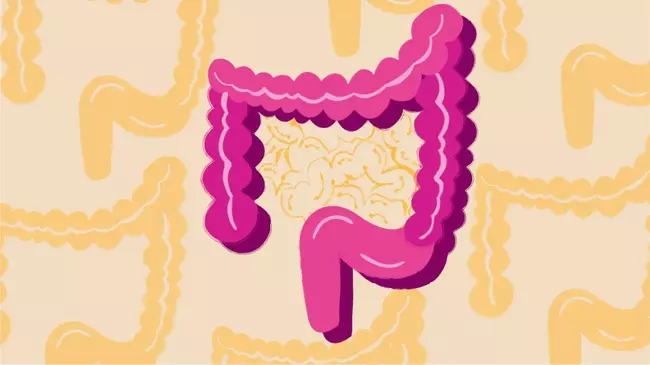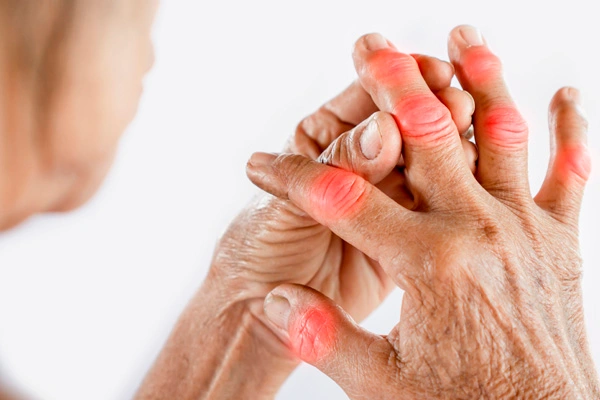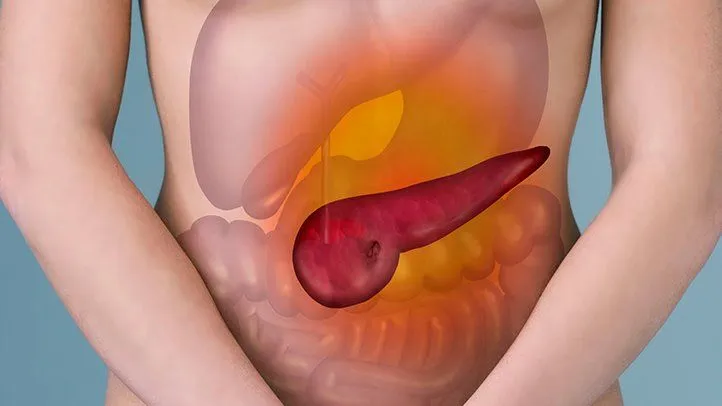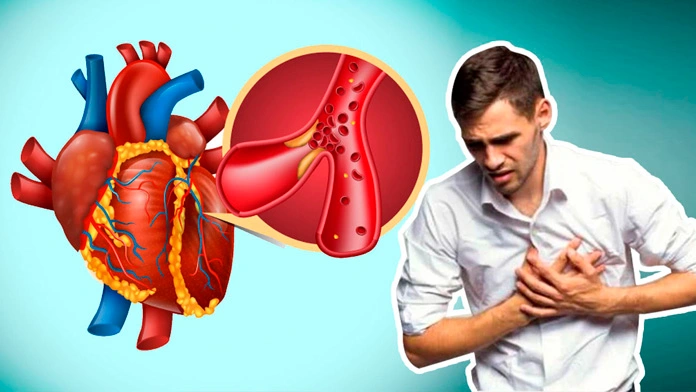Crohn's disease genetic

If you tested your DNA with a personal genomics service like 23andMe, AncestryDNA, FamilyTreeDNA, MyHeritage or another testing company, you can learn more about your risk factors for hundreds of diseases. By clicking the button above ⬆️, you can upload your raw DNA data file and receive a personalized 250-page health report with research links that is the most comprehensive.
A chronic disorder known as Crohn's disease is a multi-faceted condition that primarily impacts the digestive system. It stems from an aberrant immune response leading to excessive inflammation, commonly affecting the lining of the ileum in lower small intestines and parts of colons. Nevertheless, any area along one's gastrointestinal tract may become inflamed ranging from mouth to anus causing thickened tissues and swelling whilst open sores (ulcers) develop on internal surfaces thereof.
The onset of Crohn's disease typically occurs during a person's late adolescence or twenties, but it can develop at any point in life. Symptoms tend to recur sporadically over time and often include persistent diarrhea, abdominal discomfort and spasms, lack of appetite leading to weight loss, fever as well as bloody stool caused by inflamed intestinal tissues that may lead to anemia from long-term bleeding. Additionally, inflammation linked with the condition could potentially impact one's joints eyesight or skin quality depending on individual cases presented.
Numerous primary genes linked to Crohn's disease, such as NOD2, ATG16L1, IL23R and IRGM are associated with immune system functioning. The proteins developed from these specific genes aid the immune system in apprehending and reacting suitably to bacteria present within the intestinal lining. Many of said proteins play a part in autophagy; an act that enables cells to encircle and annihilate viruses or bacterial entities. Interferences with these gene variants can impede autophagy or cause alterations on how our immunity responds towards bacteria resting inside your digestive tract leading ultimately causing severe inflammation pertinent for people who suffer from this ailment- characteristic signs being poor digestion habits which extend over extended periods because of various genetic factors at play amidst environmental aspects too
A minimum of 200 genetic alterations have been pinpointed by scientists as having an impact on the susceptibility to Crohn's disease. Most of these deviations are believed to produce subtle modifications in gene activity, such as quantity, timing and position (expression). Although it is unclear how many variations affect the risk level for contracting this illness, they may very well influence immune system performance. Overall though, even when combined into a collective framework; known hereditary variants account for only a fraction of total predisposition towards Crohn's disease due solely from genetics.
Follow the link of the selected polymorphism to read a brief description of how the selected polymorphism affects Crohn's disease and see a list of existing studies.
SNP polymorphisms related to the topic Crohn's disease:
| rs1893217 | The PTPN2 risk gene is associated with Crohn's disease and type 1 diabetes. |
| rs10758669 | The JAK2 rs10758669 variant increases the risk of Crohn's disease: alteration of the intestinal barrier as one mechanism of action. |
| rs13361189 | The IRGM rs13361189 polymorphism may contribute to Crohn's disease susceptibility. |
| rs17234657 | rs17234657 is associated with Crohn's disease. The odds ratio associated with heterozygotes (GT) is 1.54 and for homozygotes (GG) is 2.32 |
| rs1004819 | rs1004819 is the major IL23R variant associated with Crohn's disease with early onset. |
| rs3024505 | Predisposition variants for ulcerative colitis, Crohn's disease and type 1 diabetes. |
| rs3792109 | Disruption of transmission in the Crohn's disease risk gene ATG16L1 results in sex differences in disease association. |
| rs4958847 | Deletion polymorphism associated with altered IRGM expression and Crohn's disease. 2.6-fold increased risk of Crohn's disease. |
| rs6651252 | Crohn's disease-associated SNP rs6651252 affects MYC gene expression in human colonic epithelial cells. |
| rs11209026 | Association of variant rs11209026 of the interleukin-23 receptor gene with Crohn's disease in children. |
| rs2066847 | A break in the NOD2 gene increases 3 to 35 times the risk of Crohn's disease. |
| rs2542151 | 2-fold risk of developing Crohn's disease and 1.6-fold for type 1 diabetes. |
| rs11362 | |
| rs102275 | |
| rs151181 | |
| rs181359 | |
| rs212388 | |
| rs224136 | |
| rs272869 | |
| rs274551 | |
| rs281379 | |
| rs359457 | |
| rs415890 | |
| rs419291 | |
| rs504963 | |
| rs713875 | |
| rs736289 | |
| rs740495 | |
| rs744166 | |
| rs751728 | |
| rs762421 | |
| rs1000113 | |
| rs1128535 | |
| rs1250550 | |
| rs1343151 | |
| rs1373692 | |
| rs1398024 | |
| rs1456893 | |
| rs1456896 | |
| rs1487630 | |
| rs1551398 | |
| rs1728918 | |
| rs1736020 | |
| rs1736135 | |
| rs1736148 | |
| rs1793004 | |
| rs1819658 | |
| rs1847472 | |
| rs1869839 | |
| rs1992660 | |
| rs1992662 | |
| rs1998598 | |
| rs2024092 | |
| rs2058660 | |
| rs2066842 | |
| rs2066844 | |
| rs2066845 | |
| rs2076756 | |
| rs2111234 | |
| rs2188962 | |
| rs2201841 | |
| rs2241880 | |
| rs2274910 | |
| rs2284553 | |
| rs2301436 | |
| rs2413583 | |
| rs2549794 | |
| rs2797685 | |
| rs2836754 | |
| rs2838519 | |
| rs2872507 | |
| rs2902440 | |
| rs2945412 | |
| rs3091315 | |
| rs3091316 | |
| rs3091338 | |
| rs3094188 | |
| rs3197999 | |
| rs3764147 | |
| rs3810936 | |
| rs3828309 | |
| rs3897478 | |
| rs4077515 | |
| rs4263839 | |
| rs4409764 | |
| rs4613763 | |
| rs4809330 | |
| rs4871611 | |
| rs4902642 | |
| rs5743272 | |
| rs5743289 | |
| rs6478106 | |
| rs6545946 | |
| rs6556412 | |
| rs6568421 | |
| rs6596075 | |
| rs6669582 | |
| rs6738825 | |
| rs6837335 | |
| rs6856616 | |
| rs6908425 | |
| rs7076156 | |
| rs7329174 | |
| rs7423615 | |
| rs7517810 | |
| rs7517847 | |
| rs7554511 | |
| rs7702331 | |
| rs7705924 | |
| rs7714584 | |
| rs7746082 | |
| rs7753394 | |
| rs7765379 | |
| rs7927894 | |
| rs7927997 | |
| rs8005161 | |
| rs8057341 | |
| rs9258260 | |
| rs9267911 | |
| rs9286879 | |
| rs9292777 | |
| rs9348876 | |
| rs9469220 | |
| rs9491697 | |
| rs9858542 | |
| rs9891119 | |
| rs9988642 | |
| rs10045431 | |
| rs10181042 | |
| rs10210302 | |
| rs10486483 | |
| rs10495903 | |
| rs10512734 | |
| rs10734105 | |
| rs10761659 | |
| rs10789230 | |
| rs10801047 | |
| rs10883365 | |
| rs10883371 | |
| rs10889677 | |
| rs10995271 | |
| rs11167764 | |
| rs11175593 | |
| rs11190140 | |
| rs11195128 | |
| rs11209002 | |
| rs11209003 | |
| rs11229030 | |
| rs11465802 | |
| rs11465804 | |
| rs11564258 | |
| rs11574514 | |
| rs11584383 | |
| rs11647841 | |
| rs11742570 | |
| rs11747270 | |
| rs11805303 | |
| rs11894081 | |
| rs12035082 | |
| rs12242110 | |
| rs12521868 | |
| rs12567232 | |
| rs12663356 | |
| rs12677663 | |
| rs12720356 | |
| rs12994997 | |
| rs13003464 | |
| rs13073817 | |
| rs13126505 | |
| rs13428812 | |
| rs16967103 | |
| rs17221417 | |
| rs17293632 | |
| rs17309827 | |
| rs17582416 | |
| rs17695092 | |
| rs76418789 | |
About The Author
Li DaliLi Dali, a National Foundation for Outstanding Youth Fund recipient, is a researcher at the School of Life Sciences in East China Normal University. He earned his PhD in genetics from Hunan Normal University in 2007 and conducted collaborative research at Texas A&M University during his doctoral studies. Li Dali and his team have optimized and innovated gene editing technology, leading to the establishment of a world-class system for constructing gene editing disease models.


